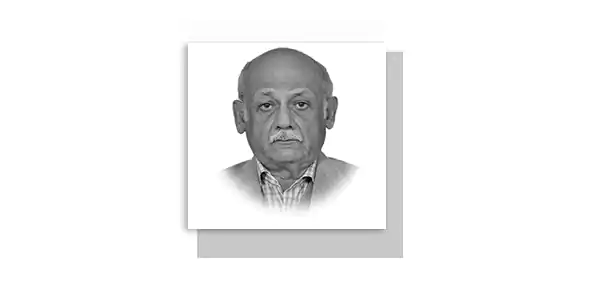SCO Summit in India and the aftermath
PAKISTAN and India, the two nuclear powered nations of South Asia, have lived in a perpetual state of enmity and hostility since the dawn of independence in 1947. After almost 76 years the hatred and bitterness has been engraved in our genes and this hostile attitude is now a permanent feature of the psyche of our political elite, captains of the establishment, analysts, journalists and the wise political pundits. In various seminars or even in drawing room discussions we witness the toxic expression of this hatred in all its forms and manifestations.
Sometimes better sense prevails among scholars and academics and in private gatherings surprisingly many people show a great desire for normalizing relations with our arch enemy and move forward with trade and tourism for peace and prosperity on both sides of the border. In the third decade of the 21st century both countries are faced with immense and daunting challenges of climate change, economic crisis, extremism and political uncertainty. It is in the interest of both nations to bury the hatchet, forget the bitterness of unsolved disputes like Kashmir or Siachin and move forward for the betterment of our toiling masses.
Bilawal Bhutto Zardari, the young Pakistani Foreign Minister, attended the SCO summit in Goa and started with a warning to the SCO member states against “weaponising terrorism for diplomatic point scoring” without naming India his reference was obviously for the attention of the Indian leaders. Indian External Affairs Minister Subrahmanyam Jaishankar, prior to Bilawal’s speech, said the menace of terrorism continues unabated, adding that taking eyes of this menace is detrimental to the security interests of all.The Foreign Minister said, “When I speak on this topic [terrorism], I do so not only as the Foreign Minister of Pakistan whose people have suffered the most in terms of a number of attacks and a number of casualties. I also speak as the son whose mother was assassinated at the hands of terrorists. I feel the pain of this loss, empathize with victims across the world in a way most can’t. I and my country are firmly committed to be part of regional and global efforts for eradicating this menace.”
Like always the short visit of Bilawal Bhutto to Goa has triggered an intensive debate and many analysts have started heaping blame on the government questioning the very need and rationale of attending this conference and the future bilateral relations between India and Pakistan. Participation in the SCO summit was a necessity because of our strong relations with China and let us not forget that the SCO is an initiative of China and any refusal to participate could have jeopardized our diplomatic relations with China. The absence of Pakistan would have provided India the opportunity to flaunt anti- Pakistan propaganda and malign Pakistan for their own political objectives. It goes to the credit of Bilawal Bhutto that he very adroitly and skilfully presented the Pakistani point of view and very eloquently spoke about the BJP government’s brutal crackdown on the minorities in India, specially the treatment meted out to the Kashmiri Muslims.
Bilawal was very emphatic and clear about our stance on Kashmir. He made it absolutely clear that India has to reinstate Articles 370 and 35-A of the Indian Constitution and only then can the two countries restart a process of dialogue on the Kashmir issue. He repeatedly said that our principled stand on Kashmir is based on law, justice and the desires and sentiments of the people of Jammu and Kashmir. India’s treatment and statements regarding Bilawal Bhutto is devoid of all diplomatic etiquette and just reflects the intellectual bankruptcy of the Modi regime. This attitude has shown again how the BJP Government garners votes by spreading toxic propaganda and hate against Muslims. India is a willing participant in the campaign of the western world against the Chinese Republic and vies for the American aid and diplomatic support to undermine Chinese influence in the area and constantly challenges the legitimacy of the China-Pakistan Economic Corridor. The Indian Foreign Minister clearly stated that we do not accept the China-Pakistan land route passing through Gilgit-Baltistan. In recent years, many Indian leaders have threatened that they will snatch Gilgit Baltistan and AJK from Pakistan.
Bilawal’s Goa-visit was his first official visit to India and the first in 12 years by any Pakistani top leader and the first trip by any Bhutto after his grandfather’s trip to Simla in 1972. This was a grand opportunity for mending fences and building bridges between the two neighbors. What was wanting in his speech was reference Benazir’s welcome to Rajiv Gandhi and Sonia Gandhi in 1989 in Islamabad. He should have mentioned that both Benazir and Rajiv Gandhi and Indira Gandhi had been victims of domestic terrorism. It was noted by Goa watchers that the Russian FM Lavrov met Bilawal with a lot of warmth and cordiality. Bilawal Bhutto reiterated Pakistan’s strong commitment to SCO, the Foreign Minister said, “There couldn’t be a more powerful indication of the importance that Pakistan attaches to the SCO than my presence here in Goa for this CFM.”
—The writer is Professor of History, based in Islamabad.
Email: tariq.aqil@headstart.edu.pk









